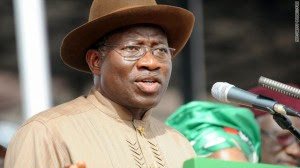Obasanjo Legacy: Lest We Forget (Part 4)
Adura_ngba: ACHIEVEMENTS UNDER CIVIL AVIATION AUTHORITY (NCAA)
The creation of NCAA in 1999 brought about the enthronement of professionalism, integrity and discipline in the conduct of aviation business and in safety oversight.
Effective regulatory activities and re- certification exercises.
Successful outing in the International Civil Aviation Organisation (ICAO) universal audit of 2006 where Nigeria came up with about 93% record performances.
A performance which ICAO recommended for other African countries to emulate.
Periodic economic audit of Nigerian Airline as a Surveillance mechanism to create a synergy between the financial health of an airline and its ability to provide safe and secure commercial aviation operations.
Six Nigerian carriers have been allocated regional and transcontinental routes.
ACHIEVEMENT OF NIGERIAN AIRSPACE MANAGEMENT AGENCY, NAMA
Injection of huge antennae of High Frequency [HF] and very High Frequency aeronautical radio among other communication facilities.
Procurement and Installation of 20 Very High Frequency Omni Directional Radio Range [VOR] equipment, 10 instrument landing system, locator beacons, On-Range directional beacons, Very High Directional Finder among others.
ACHIEVEMENTS OF NIGERIAN METEOROLOGICAL AGENCY (NIMET) SINCE 2003
Procurement and Installation of rural radio internet for dissemination of meteorological and other Information to rural dwellers.
Sophisticated, modern, computerized and automated equipment installed in its network to improve its data collection, processing and dissemination.
Forty-eight Automatic Weather Stations (AWOS) have been installed in Bauchi, Yola, Maiduguri, Sokoto, Markurdi, Abuja, Ibadan, Ilorin Obudu, Yenegoa, Calabar, etc
Nigeria was selected as one of the four beneficiaries of the 2nd generation satellite Group Receivers of Meteosat image in Africa through the untiring effort of the Agency.
Installation/Refurbishing of 17 port cabins in the network by SAHCOL
Installation of 2 new Digital Weighbridges at Lagos Warehouse by SAHCOL
Transportation infrastructure
Expanding the frontier of development
Before 1999
Dilapidated and failed roads nationwide, leading to poor transportation networks and increased highway accidents.
Emphasis on road rehabilitation, maintenance and management through the establishment of the Federal Road Maintenance Agency (FERMA), leading to rehabilitation of 500 roads in 2004 and over 1000 roads by the end of 2006.
Giving Nigerians better and expanded access through functional Highways and efficient Waterways.
Facilitating the creation of efficient railway networks.
PROSPECTS FOR NATIONAL DEVELOPMENT
This trend will continue and be consummated PROVIDED:
• Reforms are consolidated and sustained
• Prosperity not powered by oil, although primary commodity sector
still dominant
• Private sector growing by the day and owns the reforms - broadened
Stakeholders
• Growth of 12% can be achieved by exploiting hidden reserves for
growth in areas listed below:
• Youthful population, provided educational revolution succeeds
• 60% of arable land lying fallow
• Diaspora as reserve of skills and resources
• Exploiting dormant natural resources – solid minerals, oil and gas, etc
• Awakening Nigeria’s dormant capital – real estate/mortgage revolution
• The SME revolution
Breaking Dynasties of poverty: spatial inequality
Nigeria one of most unequal societies - need to enlarge the cake
Breaking the Natural Resource/Oil Curse
Infrastructure Gap: power; transportation; national gas policy; security and law and order
Taking Reforms to the States - the ‘other hand’
Decisive Solution to the Niger- Delta
Employment, especially urban youth unemployment
Macroeconomic Stability - new models and framework to lock-in recent gains: fiscal responsibility and consolidation; domestic debt burden; inflation targeting framework for monetary policy and Naira Revolution
Constitutional Reforms - especially aspects that constrain effective economic management
Electoral reforms and sustenance of Democracy
Urban Renewal across states, especially Lagos
Deepening the ICT Revolution and educational reforms
Revolutionalise Science & Technology Infrastructure
Agrarian revolution
Tourism
Challenges of the Business Environment
Social Service Delivery
Ports and Customs Reforms - clear customs in 6 hours - in Latin America it’s done in 2 hours
Administrative red-tapes; e.g. Land registration
Deepen NIPC’s one-stop shop
Institutionalizing Reforms
Leadership of the President and his team
National Council on Reforms and Transformation
Challenge of right skills: economy getting too sophisticated and needs new skills
BROAD CONSENSUS FOR DEVELOPMENT
Nigerians seem to have broad consensus on the imperatives of Africa’s giant. According to the President-Elect, the four key consensus by Nigerians are:
a. Deepening Democracy and Rule of Law
b. Economy to be driven by the private sector
c. Zero tolerance on corruption, and
d. Need for Good Governance
“Nigeria’s greatness lies in consolidating on these basic agreements and extending the frontiers of reforms” - Yar’ Adua, May 4, 2007
Both Goldman Sachs and Financial Times of London agree:
“We have a super-conviction about Africa. We are very optimistic that the corner has been turned economically. You have to imagine where it will be in two or three years’ time, and it is going to change in ways that people don’t expect. … Irrespective of its chequered and often bloody history, and in spite of ongoing political uncertainty, Nigeria is attracting an unprecedented wave of interest from bankers and investors…. Renaissance is making a big push into Africa, with Nigeria at the heart of its strategy”
Source: nairaland
The creation of NCAA in 1999 brought about the enthronement of professionalism, integrity and discipline in the conduct of aviation business and in safety oversight.
Effective regulatory activities and re- certification exercises.
Successful outing in the International Civil Aviation Organisation (ICAO) universal audit of 2006 where Nigeria came up with about 93% record performances.
A performance which ICAO recommended for other African countries to emulate.
Periodic economic audit of Nigerian Airline as a Surveillance mechanism to create a synergy between the financial health of an airline and its ability to provide safe and secure commercial aviation operations.
Six Nigerian carriers have been allocated regional and transcontinental routes.
ACHIEVEMENT OF NIGERIAN AIRSPACE MANAGEMENT AGENCY, NAMA
Injection of huge antennae of High Frequency [HF] and very High Frequency aeronautical radio among other communication facilities.
Procurement and Installation of 20 Very High Frequency Omni Directional Radio Range [VOR] equipment, 10 instrument landing system, locator beacons, On-Range directional beacons, Very High Directional Finder among others.
ACHIEVEMENTS OF NIGERIAN METEOROLOGICAL AGENCY (NIMET) SINCE 2003
Procurement and Installation of rural radio internet for dissemination of meteorological and other Information to rural dwellers.
Sophisticated, modern, computerized and automated equipment installed in its network to improve its data collection, processing and dissemination.
Forty-eight Automatic Weather Stations (AWOS) have been installed in Bauchi, Yola, Maiduguri, Sokoto, Markurdi, Abuja, Ibadan, Ilorin Obudu, Yenegoa, Calabar, etc
Nigeria was selected as one of the four beneficiaries of the 2nd generation satellite Group Receivers of Meteosat image in Africa through the untiring effort of the Agency.
Installation/Refurbishing of 17 port cabins in the network by SAHCOL
Installation of 2 new Digital Weighbridges at Lagos Warehouse by SAHCOL
Transportation infrastructure
Expanding the frontier of development
Before 1999
Dilapidated and failed roads nationwide, leading to poor transportation networks and increased highway accidents.
Emphasis on road rehabilitation, maintenance and management through the establishment of the Federal Road Maintenance Agency (FERMA), leading to rehabilitation of 500 roads in 2004 and over 1000 roads by the end of 2006.
Giving Nigerians better and expanded access through functional Highways and efficient Waterways.
Facilitating the creation of efficient railway networks.
PROSPECTS FOR NATIONAL DEVELOPMENT
This trend will continue and be consummated PROVIDED:
• Reforms are consolidated and sustained
• Prosperity not powered by oil, although primary commodity sector
still dominant
• Private sector growing by the day and owns the reforms - broadened
Stakeholders
• Growth of 12% can be achieved by exploiting hidden reserves for
growth in areas listed below:
• Youthful population, provided educational revolution succeeds
• 60% of arable land lying fallow
• Diaspora as reserve of skills and resources
• Exploiting dormant natural resources – solid minerals, oil and gas, etc
• Awakening Nigeria’s dormant capital – real estate/mortgage revolution
• The SME revolution
Breaking Dynasties of poverty: spatial inequality
Nigeria one of most unequal societies - need to enlarge the cake
Breaking the Natural Resource/Oil Curse
Infrastructure Gap: power; transportation; national gas policy; security and law and order
Taking Reforms to the States - the ‘other hand’
Decisive Solution to the Niger- Delta
Employment, especially urban youth unemployment
Macroeconomic Stability - new models and framework to lock-in recent gains: fiscal responsibility and consolidation; domestic debt burden; inflation targeting framework for monetary policy and Naira Revolution
Constitutional Reforms - especially aspects that constrain effective economic management
Electoral reforms and sustenance of Democracy
Urban Renewal across states, especially Lagos
Deepening the ICT Revolution and educational reforms
Revolutionalise Science & Technology Infrastructure
Agrarian revolution
Tourism
Challenges of the Business Environment
Social Service Delivery
Ports and Customs Reforms - clear customs in 6 hours - in Latin America it’s done in 2 hours
Administrative red-tapes; e.g. Land registration
Deepen NIPC’s one-stop shop
Institutionalizing Reforms
Leadership of the President and his team
National Council on Reforms and Transformation
Challenge of right skills: economy getting too sophisticated and needs new skills
BROAD CONSENSUS FOR DEVELOPMENT
Nigerians seem to have broad consensus on the imperatives of Africa’s giant. According to the President-Elect, the four key consensus by Nigerians are:
a. Deepening Democracy and Rule of Law
b. Economy to be driven by the private sector
c. Zero tolerance on corruption, and
d. Need for Good Governance
“Nigeria’s greatness lies in consolidating on these basic agreements and extending the frontiers of reforms” - Yar’ Adua, May 4, 2007
Both Goldman Sachs and Financial Times of London agree:
“We have a super-conviction about Africa. We are very optimistic that the corner has been turned economically. You have to imagine where it will be in two or three years’ time, and it is going to change in ways that people don’t expect. … Irrespective of its chequered and often bloody history, and in spite of ongoing political uncertainty, Nigeria is attracting an unprecedented wave of interest from bankers and investors…. Renaissance is making a big push into Africa, with Nigeria at the heart of its strategy”
Source: nairaland





Comments
Post a Comment